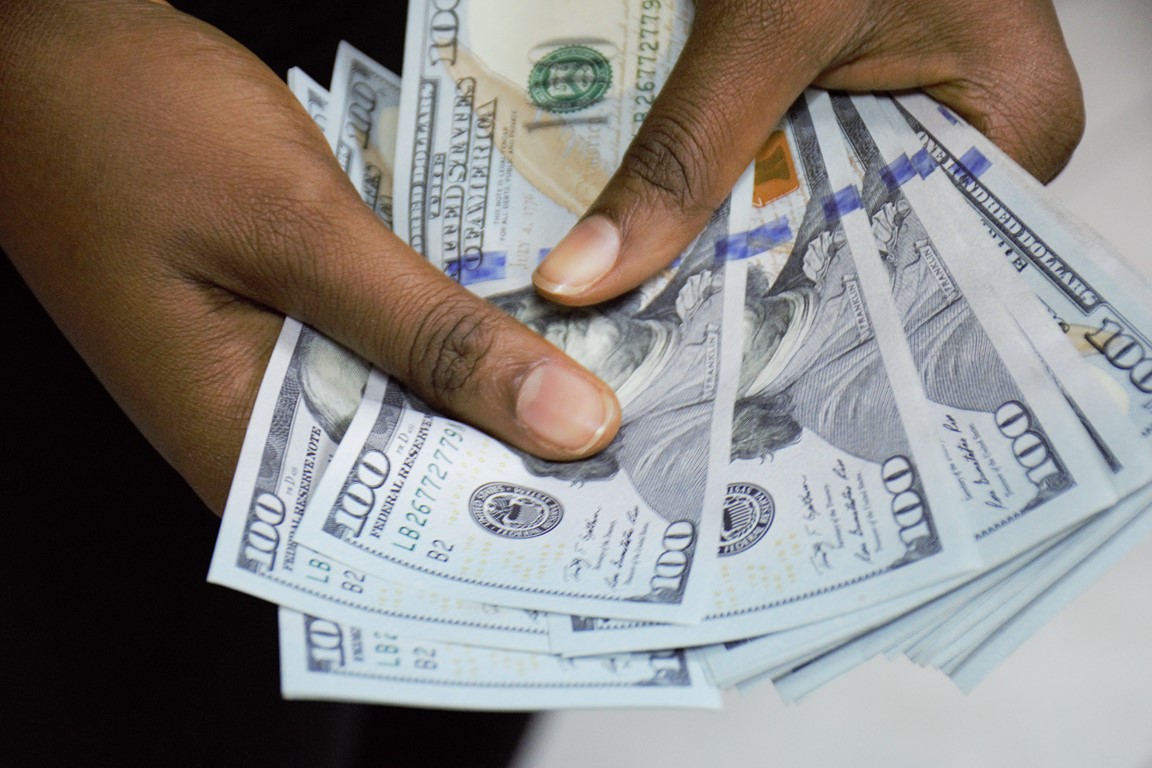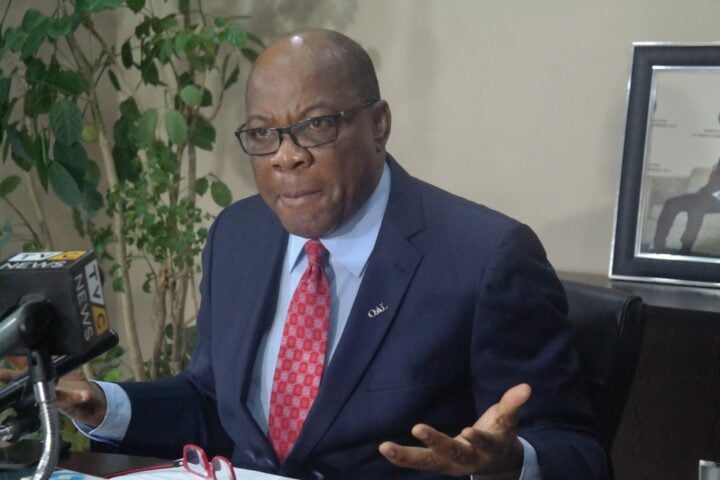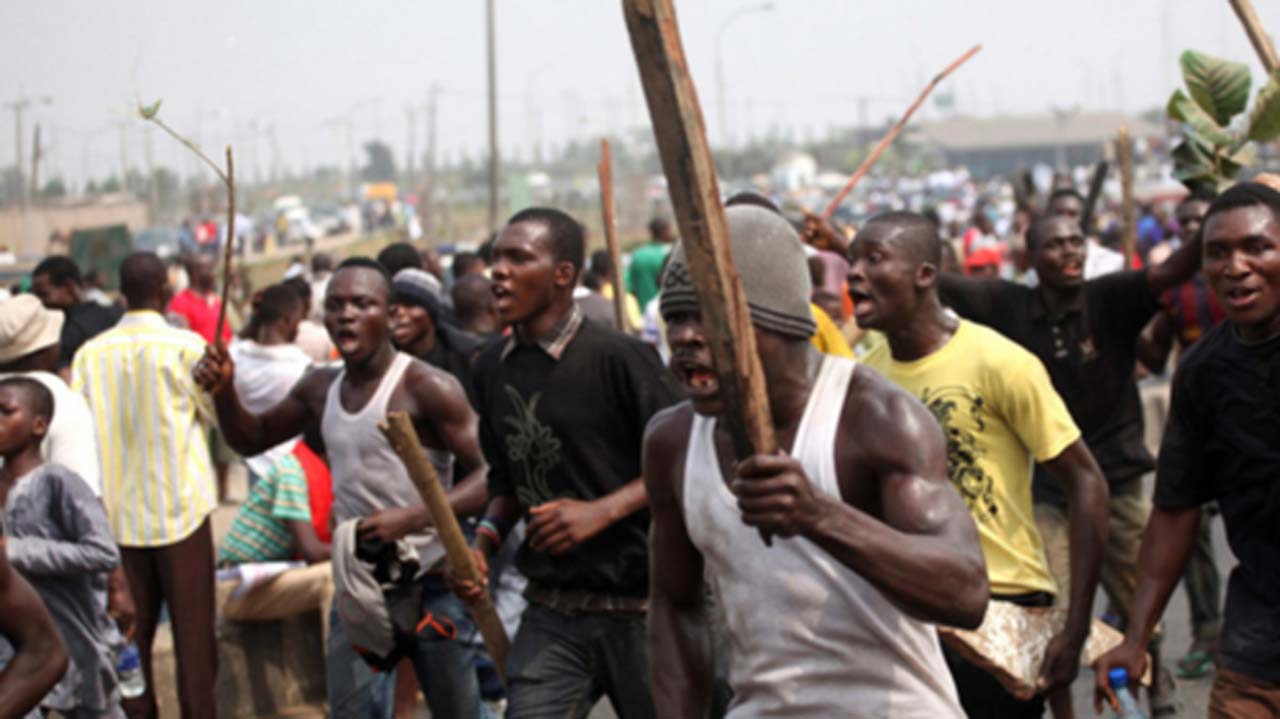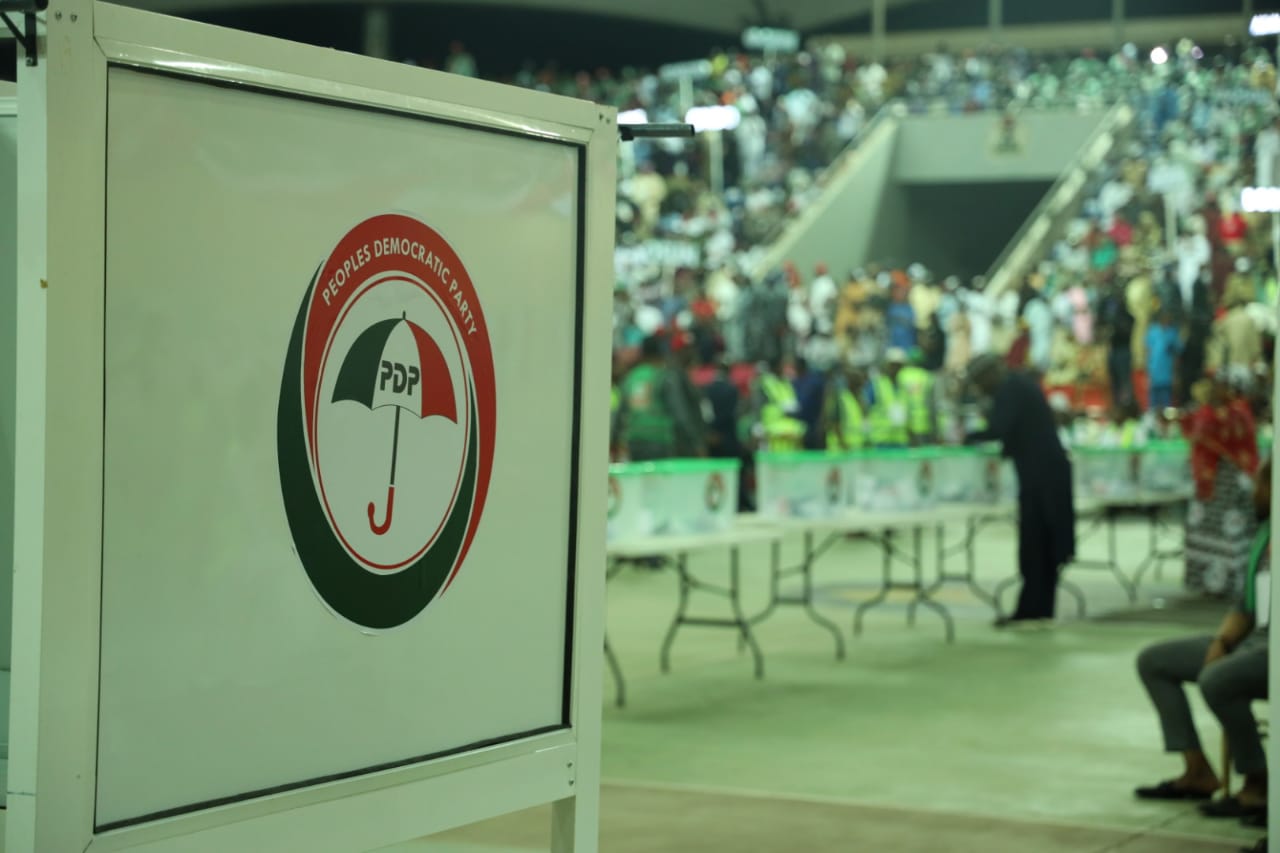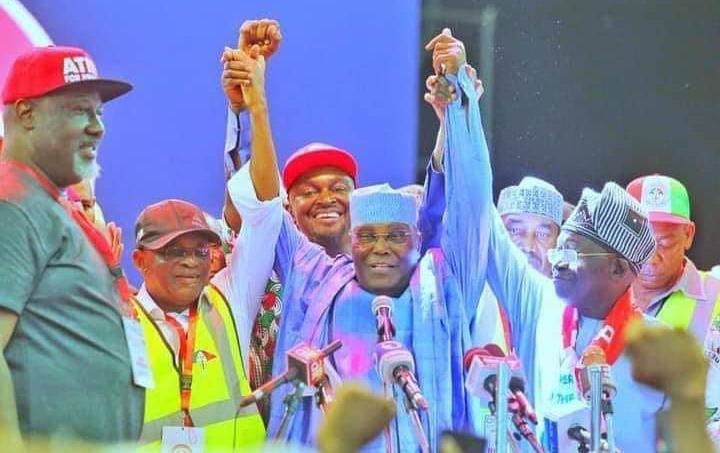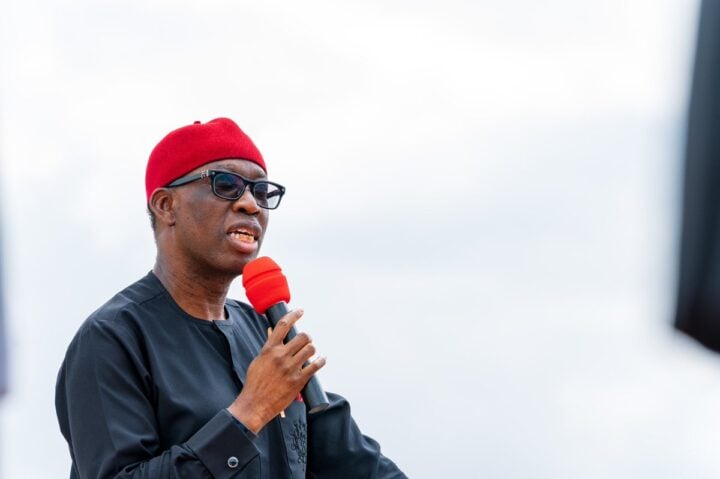While touring Northern Nigerian provinces in the 1950s to canvass for votes, Ahmadu Bello, the great-great grandson of Uthman dan Fodio and Premier of the Northern region, used to have his flowing robes stuffed with banknotes which he then distributed to the electorate. For the Sardauna, that munificence took the place of campaigning. This was aptly captured by John Meagher, in his ‘The Establishment of Military Government in Nigeria’ of February 16, 1966, with additional information from the National Archives and Research Administration (NARA) in Maryland, USA.
So, on May 29, 2023, rather than victors in the All Progressives Congress (APC), Peoples Democratic Party (PDP) presidential, national assembly, gubernatorial and house of assembly primaries, money will be the Superman that will get sworn into office. Considering its overriding role in the primaries of the Nigerian political parties in the last few weeks, it will be grossly unfair not to give money its due pride of place. By then, money will be the Nigerian president, lord of the fishes of the sea; birds of the air and commander of all living beings in the geography of Nigeria.
To be fair, money didn’t just snatch this consequential role in Nigerian politics all of a sudden. From the First Republic when politics took its shape as a decider of the fate of a vast people seeking development, Nigerian politicians immediately responded with a gale of privatization of public wealth, with public officials turning public offices into a type of prebend. In 1955, Eastern Region’s minister of finance and a fierce columnist with the West African Pilot, Mbonu Ojike, also known with the moniker, “Boycott the boycottables,” whose column – Weekend Catechism, was a must-read, was accused of collecting kickback as a ‘dash’ for an award of construction contracts to an Italian firm called Borini Prono. The money was suspected to have been planned to be funneled back into the NCNC for the conduct of election. Allegations of corruption also marooned Ojike over his involvement in the purchase of shares in the African Continental Bank (ACB) by the Premier, Nnamdi Azikiwe while he was minister of finance.
In 1964, a British company also offered to give a discount of 10 per cent on a bulk sale of 600 motor-scooters to S.L. Akintola’s NNDP, the party in government which had splintered out of the Action Group. It was later found out that though 10 per cent discount was given to the party, in real terms, 7.5 per cent showed on the party’s invoice, with the remaining 2.5 per cent ending up as kickback for conduct of election by the party. Indeed, party fundraising was the conduit of funneling money into party politics during this period of the First Republic.
Advertisement
The Republic’s minister of finance, Festus Okotie-Eboh, said to have been described by one American diplomat as “an inveterate ten-percenter” due to his rapacious greed for creaming ten percent off every contract awarded by government, was also reputed as “a leg man” for the Sardauna. The Premier, through Okotie-Eboh, was said to have profited from the luscious public corruption of the glamorous First Republic minister of finance as he funneled huge monthly creams of graft to him.
Nigeria’s Second Republic saw politics go a notch higher in shamelessness. The National Party of Nigeria (NPN) signposted this privatization of public purse. Chief AMA Akinloye, Umaru Dikko and other party stalwarts made the contours separating government purse from personal purse indecipherable. Politicians of the ruling party breakfasted in Lisbon, lunched in Paris and dined in California, at government’s expense. Between the First and Second Republics, the Nigerian electorate seemed to have been taken to a schooling session which toughened their hearts into becoming as hard as a snail’s shell. Gradually, the electorate was purged of its investment of any redemptive capability in the politician and began to take its destiny into its hands by demanding immediate lucre from the politicians.
Ibrahim Babangida’s Third Republic experience seemed to be the final nail on the coffin of a moralistic Nigerian politics. Babangida embossed official stamp on political corruption. Through his NRC and SDP, the military despot grew a crop of politicians who openly purchased the souls of the electorate for a fee. By the time Sani Abacha took over the mantle of office in late 1993, leading to the final ascendancy of the Fourth Republic in 1999, both the politician and the electorate had become alumni of the school of sewage politics, one offering, the other purchasing; haggling and bargaining on the cost of votes, same way as market women do with Tilapia fish.
Advertisement
Today, Mammon, that god of wads of crispy currency, reigns in Nigeria’s electoral politics like D. O. Fagunwa’s Arogidigba. Anytime Nigerian politicians are about their festival of rituals, they capture the polity and money is slaughtered in sacrifice. According to Fagunwa, whenever Arogidigba wanted to celebrate her rituals, there was always a spiritually occasioned storm. For the Nigerian polity, the case is similar. The electioneering process in Nigeria is a time that can be likened to when a hen perches on the rope and both – the hen and the rope – are in a state of quandary. In Ireke Onibudo, the Fagunwa character, Arogidigba, was the queen of all the fishes in the sea.
This fish, whose consuming powers and majesty can be likened to Sir Victor Uwaifo-made popular Mammy Water, came under Fagunwa’s magically descriptive powers through his lead character, Ireke Onibudo. The queen of fishes, Arogidigba, needed to feast on human flesh to celebrate her annual fish festival. It was this same time that Ireke was on a journey by boat and his boat was thus overturned by a raging storm. He was subsequently captured and driven right underneath the sea bed which was the kingdom of fishes. In Ireke Onibudo’s description of Arogidigba, this part animal, part human, wore the visage of a young lady, adorned with a beautiful hairdo and with a large fin. Arogidigba also had her house adorned with pots which, on entering it, a huge snake saunters out. This consuming nature of the Queen of fishes during its annual festival answers to the Nigerian period of election.
Though the Fourth Republic has been riven by a rather novel godification of money, what we have witnessed in the last few weeks is the limit. Politicians openly corrupt the electoral process with abandon, openly buying the hearts, the votes and the tomorrow of the electorate. Having reduced the Naira to the uselessness of Zimbabwean dollars and the Benin Republic CFA Francs, no thanks to Godwin Emefiele, politicians have been deploying the American dollars to corrupt the electorate. It got to its zenith last week with an American dollar exchanging for well over N600, an unprecedented swing in Nigerian currency history.
Why has graft successfully emblemized Nigerian politics in this manner? Is there any hope that it will take a backseat in further electoral considerations? To the second question, there is no hope that a jealous index like money will allow any other factor relegate it to a second place. This is because, like many parts of Africa, Nigeria operates a political and social culture where gratification occupies a prime place of prominence. Counterfeit democracies being run by African political class have sustained this culture because our political culture has intermixed with our social culture, to the benefit of the political class. Indeed, graft has become an embedded feature of African democracy.
Advertisement
“Gift,” “dash” and sundry monikers have been given to corruption from time immemorial in Africa. Parents sent their wards on errands promising them “dash” on return. Favours done in homes are requited with “dashes” and rewards. It is this culture of rewards that has enveloped the highly cancerous system of corruption in Nigeria. Unfortunately, it has metastasized in Nigeria over the decades. And because politicians go to office to line their esophagus, the electorate also feels compelled to wring its own dividends from representatives who are only seen when they are canvassing for votes in a four-yearly ritual.
For the electorate, the period of electioneering is a period of excitement when they squeeze money from politicians. Between both, there seems to be an understanding that money given as bribe at election periods are the only way dividends of democracy can be given. Nick Cheeseman and Brian Klaas, in ‘How To Rig An Election’, said that between 2012 and 2016, 67 per cent of elections held in Sub-Saharan Africa featured significant vote-buying while Latin America witnessed 36 per cent. According to them, there is also regional variation in the currency of clientelism (purchasing of political clients through graft). While in Ghana, cutlasses are given out by politicians as gifts to influence votes, especially in agrarian communites, in Malaysia, the corruption is disguised in such a way that it does not look like vote purchase. Lucky draw raffles where winners emerge are the order of the day in Malaysia. In a rural area of Thailand like the Chonburi Province, vote buying goes for about 300 baht ($9) and as high as 3,000 bahr, ($90). It is so exciting to the electorate that they call the lucrative night before election “the night of the howling dogs” – kheun maa hawn.
In Kenya, as at 2017, it was estimated that the total money spent by candidates for six elections contested for was $1 billion and governorship candidates spent $6 million. In India, politicians were said to have spent the sum of $5 billion to campaign for offices in 2014.
All those were dwarfed by the bazaar in Nigeria in the last few weeks called party primaries. Ultimately, however, the people would be the losers of this huge votes or voters’ purchase. Though the bulk of the money being spent by politicians to buy the consciences of the voters were liberated from public purses, in cases where they are products of debts incurred from either loans or pawning of personal properties for the elections, the public purse suffers eventually as these politicians, upon coming into office, will first gouge out their investments and with interests.
Advertisement
It is a colossal shame that electoral heists got to this astonishing level under a man who, on coming into government, parodied himself as a representation of public office values. Under the tip of the nose of Muhammadu Buhari, political and electoral corruption have worsened and taken the shape of a hydra. When politicians paid N100 million to obtain party presidential office nomination forms and N50 million to run for the office of the governor, what absurd extent would they not go to ensure that their investment is secure?
Political party primaries, preparatory to the 2023 elections, went into Albert Camus’ theatre of the absurd, in form and content. Not only were the sums on parade with which voters were bribed bafflingly shameful, money became the passport of election. The PDP presidential primaries held in Abuja on Saturday was said to be such an ugly spectacle that one of the aspirants, Muhammed Hayatudeen, stormed out of the process, claiming that there was “obscene monetization of the contest”. Some aspirants were said to be offering as much as $15,000 dollars per delegate. Only an oil “bunkerer” could offer that much! In some other primary grounds, delegates, in the process of haggling the amount on offer, unabashedly told aspirants not to bother to bring any infrastructure or development to their constituents once they paid them the acceptable amount of dollars. Exerting their pounds of flesh in instances where the delegates collected money and failed to vote accordingly, some aspirants were recorded to have used violence to recoup their money.
Advertisement
The overall result of this charade that we call primaries is that, money, rather than electorates, “elected” into offices persons who will be sworn-in in May 2023. Athenians of the Ancient Greece where the first known democracy in the world came about in the 5th Century BC and who came about this system of election, knew what they were doing by that concept of voting. Voting contains a spiritual element. In other words, when a voter drops his vote into the ballot, there is a spiritual bond that is created between him, the elector and the elected. That bond is the adhesive that cements good governance and development in society. Now, in Nigeria, in place of that spiritual spectacle, what we have are mannequins who are ultimately creations of Mammon. They have no link with us, are not answerable to us and owe us nothing.
By the way, EFCC will be a shameless and toothless bulldog if it does not go after, ferret for and grill the candidates who purportedly gave each delegate those huge American dollar bills at the PDP primary venue. How was that behemoth sum come about? What jobs do the aspirants do? We have seen the bucks, where are their shops?
Advertisement
The Yoruba will say that you cannot merchandize sands and not collect stones in return, something that Pete Edochie, in his striking Twitter local proverbs, expressed as, “a man who puts local gin in a Hennessey bottle may deceive onlookers but not his own throat”. The purport and import of our future that we sold for cheap dollar bills, as well as the mannequins without human feelings, in whose veins run no blood, which those dollar bills created at party primary grounds, will soon boomerang on us. By then, in the words of The Mighty Diamonds, a Jamaican harmony trio who recorded roots reggae, with a strong Rastafarian influence, there will be “weeping and wailing and mourning and gnashing of teeth”.
Advertisement
Views expressed by contributors are strictly personal and not of TheCable.
Add a comment

